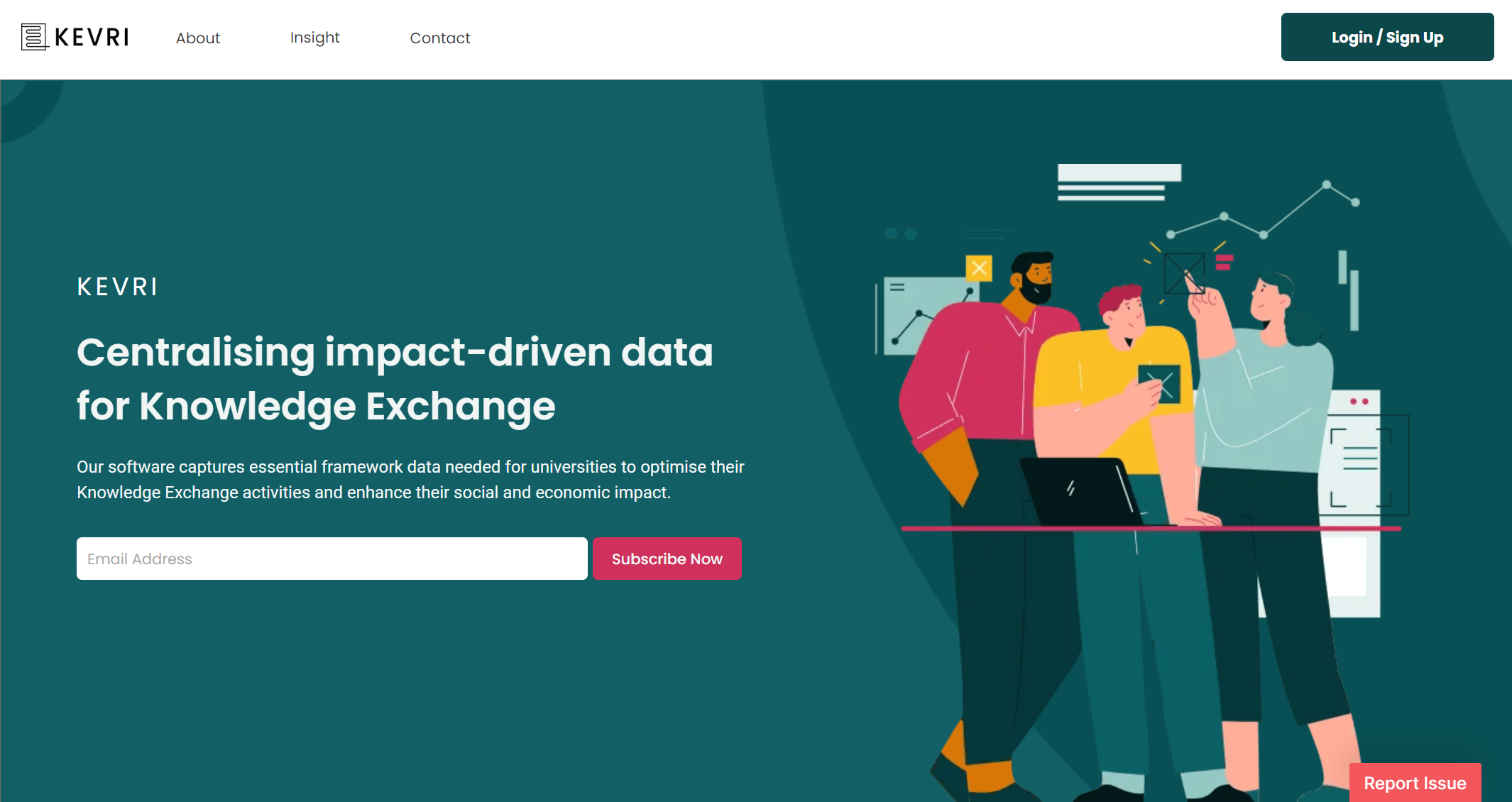Recommendations for tackling research bureaucracy
Join us as we delve into Professor Adam Tickell’s report on UK research bureaucracy and summarise the guiding principles for creating a greater research system.

Throughout history, research has been a vital asset in improving our world — from identifying life-saving treatments to developing life-changing technologies.
However, it has become more apparent that there is a growing need to remove unwarranted bureaucracy often found in the UK’s research system. Thus, areas of improvement must be identified and acted upon, particularly around simplifying the research process.
In March 2021, an independent Review of Research Bureaucracy was carried out by University of Birmingham Vice-Chancellor Professor Adam Tickell. The review aimed to identify any unnecessary bureaucracy across the research system, which has become a barrier to effective working and efficiency.
In July 2022, the final report was released, presenting findings and recommendations across various aspects of the research system. The findings reflect evidence from over 250 sources, including funders, policymakers, institutional leaders, individual researchers, and research teams.
In this KEVRI article, we provide a summary of common issues outlined within the report alongside the key takeaways for the attention of government, universities, researchers, research organisations, and funding organisations.

Applying for funding
Organisations and individuals cited ‘funding applications’ as one of the causes of unnecessary bureaucracy. Funding applications have been developed to ensure that limited funds are spent in the most beneficial way possible. However, there are concerns about how rigid this process is.
The review highlights:
- Concerns from researchers and research managers around the length and complexity of the application process.
- The low success rates of search grant applications (often around 20 percent) and the wasted time and resources spent during the first stage.
- A two-stage application process could help, but there is the concern that this may lead to resourcing challenges for funders.
In response to these concerns, the report makes the following recommendations:
- Funders should experiment with application procedures to lighten the load on applicants, such as two-stage procedures where the amount of information needed rises in proportion to the possibility of receiving funding.
- Funders should collaborate to increase consistency throughout their application procedures, including in the language they use and the questions they pose. UKRI should help facilitate this across Research Councils in the beginning.
- Funders must make sure that the application procedures uphold their commitments to equality, diversity, and inclusion.
- In most cases, funders should remove the need for letters of support from applications.
Grant Implementation and In-Grant Management
Another key area identified through the review as having a need and scope for positive change is grant implementation and in-grant management.
Some of the feedback around this includes:
- The short time period between the issue of an award letter and the start of a research project can cause issues for things like procurement, recruitment, and financial admin.
- On the opposite end of the spectrum, the time it takes to get agreement from research funding organisations on changes to a project or funding profile can be too long.
- Funding recipients are often confused over the purpose of some information requested during project monitoring.
- Major delays are often caused by organisations not using standard formats of contracting and collaboration agreements, instead preferring to use their own versions.

To address the above concerns, the report recommends the following:
- Funders and recipients should ensure enough time between the issue of the award letter and the start of the project to fulfil all relevant activities.
- Funders should incorporate flexibility whenever possible, including no-cost extensions within realistic constraints, to reduce the time required to address project modifications and the volume of queries funders receive.
- Standard contract and collaboration agreement templates should be used wherever possible to speed processes along and help facilitate third-party collaborations.
Digital Platforms
The review suggests that research bureaucracy depends on digital platforms and the need to improve them.
Some of the findings and challenges surrounding this aspect of research include:
- The development of digital platforms that can support institutional diversity and keep up with progress in UK research without being unduly complex is a challenge.
- Greater harmonisation of digital platforms is needed.
- The view that bureaucracy can be greatly reduced through improved synergy and data sharing between systems.
- There is scope to deliver a higher quality of services across key funding organisations as they move away from older systems and adopt new digital platforms. For example, UKRI and the pilot of its new digital funding service, which will facilitate Research Council grant applications from 2024.
To improve on the above, the report recommends:
- In higher education, sector-wide groups should be created and be responsible for overseeing the development and integration of the research information ecosystem. This includes research management data.
- The design and activation of new digital systems should factor in the importance of interoperability and improved data flows.
- Existing systems and platforms could explore ways to improve data flow between different platforms. For instance, this could include looking into APIs, point-to-point integration, and machine learning.

One such digital platform that supports institutional diversity is KEVRI.
Currently, the team are developing a bespoke set of impact indicators to tie to Knowledge Exchange and Research management data with the aim of tackling research bureaucracy.
In addition, KEVRI software creates an engaging ecosystem of KE data to improve the flow of publicly funded research projects from idea to evaluation stages. The software also supports the collaborative processes between Higher Education Institutions and their respective third-party partners (i.e. businesses and community groups) by maintaining a digital trail of partnerships.
Institutional Bureaucracy
The review also outlines the need for research organisations (with an emphasis on universities) to address their own unnecessary bureaucracy to improve collaboration and innovation.
Strong links were found between the bureaucracy around the requirements of funders, regulators, and government, and each organisation’s own systems, processes, and approaches.
- Evidence found that ‘institution bureaucracy’ is the most cited source of unnecessary bureaucracy in research.
- Within universities, there seems to be a culture of risk aversion, which can negatively impact decision-making processes and lead to significant delays and operational difficulties.
- Generalist professional services departments are often called upon to offer research support. However, some say this can lead to delays due to a lack of familiarity or confidence when dealing with research grant agreements or contracts.
Recommendations for addressing the issue of institutional bureaucracy include:
- The need for research organisations to consider the feasibility of delegating research-related approvals to those who are closer to research. For instance, a research manager or officer.
- The recommendation for Universities UK to collaborate with universities to discover new methods and platforms for collaboration on research management issues i.e. increasing risk appetite.
- Research organisations should bring forward “Trusted Funder” policies to enable projects to move forward at risk, within certain constraints.
Communication
A number of issues are also highlighted within the review relating to communication and unnecessary bureaucracy.
These include:
- Concerns over the extent to which the purpose and significance of specific R&D funding systems and processes are explained and understood.
- The need to increase awareness of the existing tools and methods available that can reduce bureaucratic burdens, for instance, “persistent digital identifiers''.
- Government and funders could further engage with the sector on the specifics of implementing new requirements to identify the most efficient approach.
- Specific concerns relating to the use of jargon and inconsistent language within the sector.
Based on these communication issues, the report recommends that:
- Wide-ranging consultation should be carried out by the Government, funders, and regulators with research organisations before introducing new regulations.
- Both the Government and funders must proactively communicate about new and emerging regulatory issues.
In addition to the recommendations to all the above themes and issues, a government response is expected to follow.
It is hoped this, along with ongoing discussion, monitoring, and evaluation will outline further details on how the identified concerns will be addressed and, ultimately, how to remove research bureaucracy in the future.
You can read the full report here.
Want to learn more about KEVRI and how our digital platform supports the collaborative processes between Higher Education Institutions and their respective third-party partners? Subscribe to our mailing list today or email info@kevri.co!





